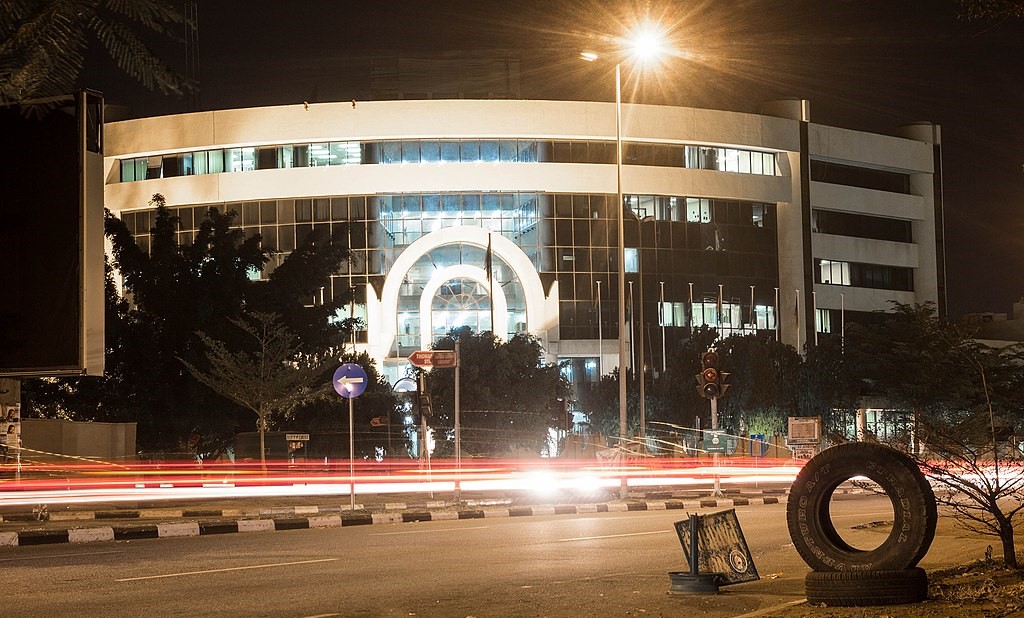The remaining members of ECOWAS promote themselves as democracies and have even threatened to intervene militarily in member states to restore democracy. But the evidence suggests they are not as democratic as they like to pretend, writes Abubakar Usman.
A wave of military coups in West Africa has brought the Economic Community of West African States (ECOWAS) to the brink of intraregional conflict. Currently, four member countries—Burkina Faso, Guinea, Mali, and Niger—are under military rule following successful coups. In response, ECOWAS suspended all four members, implemented sanctions, and even threatened military intervention in Niger, the most recent country to experience a coup, to restore democratic rule.
Democracy encompasses more than merely conducting elections. While free and fair electoral processes are crucial, democracy also emphasises the maintenance of the rule of law, safeguarding human rights, ensuring an independent judiciary, and fostering active civil society participation. To work, it needs transparency, accountability, political pluralism, and freedom of the press. Given ECOWAS’s apparent readiness to intervene militarily to restore democracy, you would expect a high level of commitment to these ideals within their own borders.
According to the Freedom House dataset, which measures the level of democracy in countries worldwide, only two current members of ECOWAS, Cabo Verde and Ghana, are classified as “free.” The remaining ECOWAS members, are categorised as “partly free.” This dataset evaluates various indicators such as the electoral process, political pluralism, government functionality, freedom of expression and belief, associational rights, the rule of law, and individual rights.
Nigeria, as a “partly free” country, scores 43 out of 100, while Burkina Faso, categorised as “not free,” scores 30. The disparity between the two countries on these indicators is only 13 points, indicating a minimal difference despite Nigeria’s portrayal of itself as a champion of democracy within ECOWAS and a country viewed as not free. Nigeria’s scores of 20 out of 40 in political rights and 23 out of 60 in civil liberties further underscore its challenges in meeting democratic standards.
Democracy in name
The Economist Intelligence Unit Political Regime 2023 dataset categorises most ECOWAS members as either ‘authoritarian regimes’ or ‘hybrid regimes’, with only Cabo Verde and Ghana classified as ‘flawed democracies’ by this standard. Notably, Nigeria is labelled as a hybrid regime or ‘electoral autocracy’. However, what distinguishes these so-called democracies from the military junta-led countries is the presence of elected autocrats.
The mere existence of elections and voting does not guarantee a country’s democratic status. In practice, elections in Africa often serve as a facade, masking deeper issues. Across the continent, including in West African nations, democracy is frequently reduced to the mere act of holding elections, which often fall short of being free and fair.
In terms of democracy, the disparities between the remaining ECOWAS members (excluding Cabo Verde and Ghana) and the military junta-led countries in the region extend only as far as having periodic rigged elections that result in leaders who primarily serve their own interests. These West African democracies themselves exhibit deficiencies in political rights and civil liberties, exemplified by the case of Nigeria.
It is imperative to question whether the flawed democracies of West Africa are sufficiently democratic to pass judgment on other countries in the region based on democratic principles.
While democracy is a desirable form of governance, it should not be pursued at the expense of regional peace, harmony, and stability. If ECOWAS members concentrate on enhancing the existing flawed democracies, other members will likely follow suit. Tangible improvements in governance will be attractive to national populations and act as a deterrent against future attempts at military takeovers throughout the region.
Regrettably, the prevalence of poor governance, the absence of the rule of law, and the lack of both electoral rights and civil liberties have created opportunities for military actors to exploit the situation by seizing power across the region. Using the World Bank’s dataset on governance from 2022, the military junta-led countries outrank most of the so-called democracies on indicators that include voice and accountability, government effectiveness, regulatory quality, rule of law, and control of corruption. For example, Burkina Faso surpasses Nigeria across these metrics, including political stability (8 versus 7.5), government effectiveness (21.2 versus 14.1), regulatory quality (34.4 versus 12.2), rule of law (28.3 versus 19.8), and control of corruption (51.8 versus 14.6).
Unless the remaining ECOWAS members begin to deliver tangible results for their citizens, more countries are at risk of experiencing military coups, which poses an existential threat to the regional bloc. ECOWAS should prioritise dialogue to guide military junta-led countries back onto the democratic path rather than resorting to sanctions and suspension. Moreover, it should broaden its conception of democracy beyond mere elections and voting and strive to enhance other crucial democratic values across the region.
Photo credit: US Army used with permission CC BY 2.0 DEED





